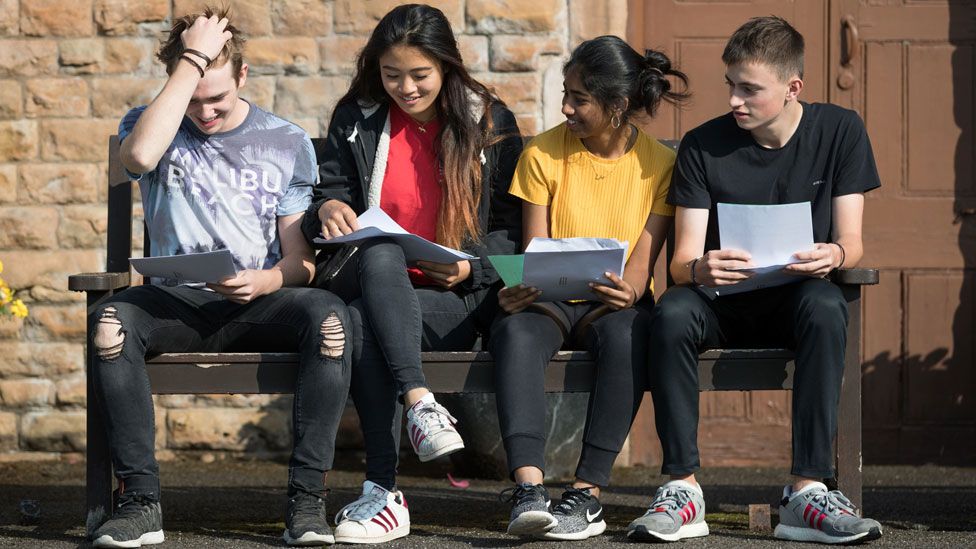
How will young people catch up in areas where the pandemic has put their lives on hold? In jobs, education, getting a place of their own and mental health many are falling behind.
We ask some of those struggling through lockdown about how the pandemic has affected their future prospects.
Getting a start in the world of work
Before the first nationwide lockdown kicked in last March, things were going well for 26-year-old textile designer Frances Shaw. All the hard work she had put in at university was finally paying off - she had her dream job in London, had moved into a new apartment with her boyfriend, and was making plans for the future.
Less than a year later, she is unemployed and has moved back to Yorkshire, where she is living with her boyfriend's parents. "My career was on the up and up, I was doing really well, but now it feels like there is a big question mark hanging over everything. I keep thinking it's going to improve but then something else happens. I'm just hoping the industry will pick up again."
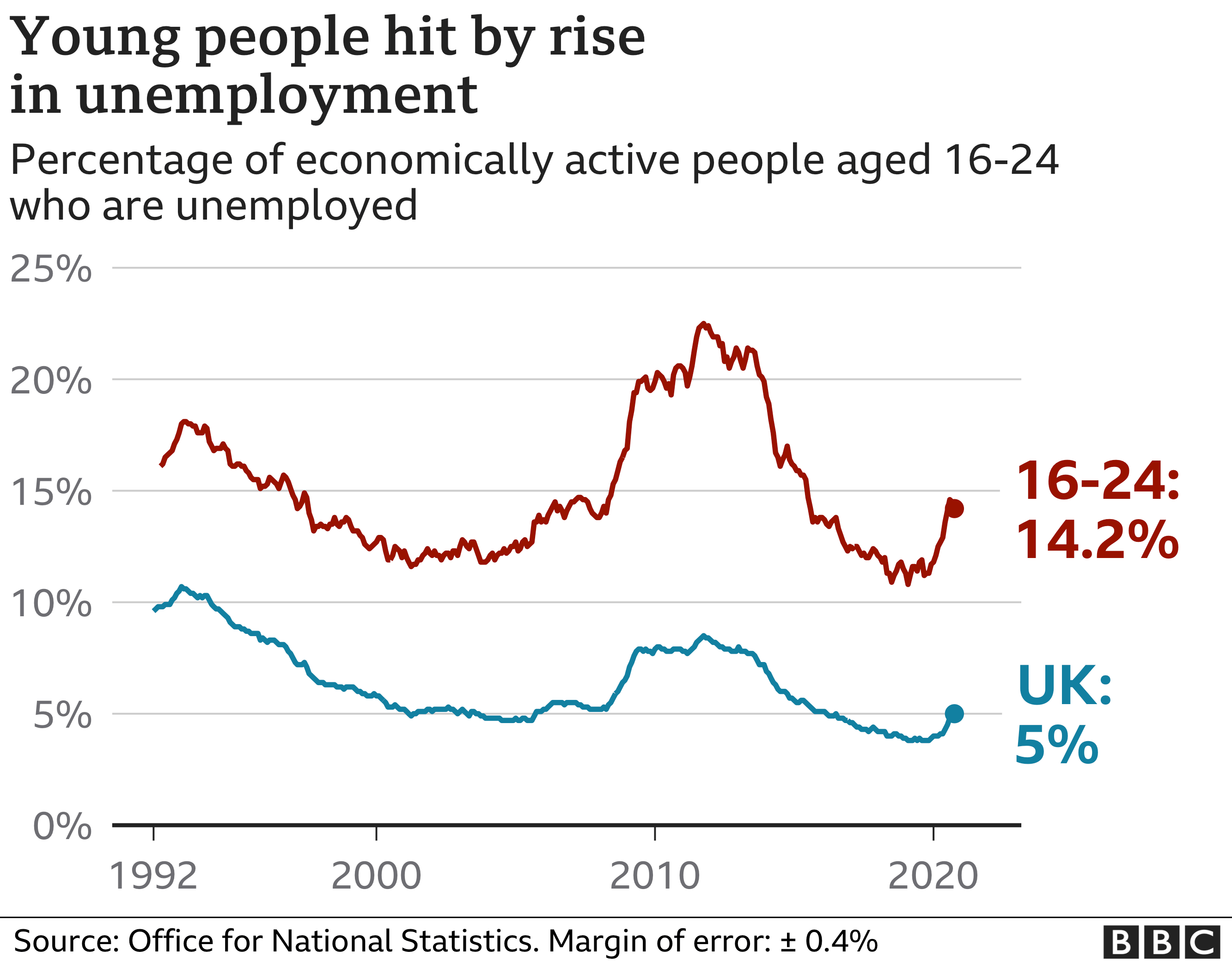
Frances was initially furloughed but in September, after a dramatic dip in sales, she was made redundant. She started looking for freelance work, but like many other newly self-employed people, she did not qualify for government support. "I want to move forward with my life but I feel in limbo. I don't know what the next six months is going to look like."
The pandemic has seen young people having to downsize their ambitions - and they will be hoping this will only be temporary.
Flo Bailley, a 21-year-old who graduated from Nottingham University last year, is currently on furlough from a job as a waitress. "I feel so lucky to have a job", she says, but her dreams of a career in a museum have been put on hold. She is still applying for jobs and living with her parents in Devon.
"It is a really difficult time for young people who are just starting out in the jobs market," says Clare McNeil, associate director of the left-leaning think tank the Institute for Public Policy Research.
I keep thinking it's going to improve but then something else happens. I'm just hoping the industry will pick up again
The sectors that have been hit hardest are those that employ the most young people - hospitality, tourism and leisure. And it is too early to say whether employment will return to pre-pandemic levels, says Ms McNeil, but she sees some grounds for optimism in more "green" jobs
All eyes will be on Chancellor Rishi Sunak when he delivers his Budget on 3 March for plans to boost jobs as the government moves to economic recovery mode.
Getting education back on track
Eleanor Corney, an 18-year-old from Dagenham, in east London, has faced "massive uncertainty" in her education during the pandemic - and she says there are big questions still outstanding.
She's been in a year group unfortunate enough to be disrupted across two academic years, in both school and university.
Last year, her A-levels were caught up in the exams chaos. And this year, as a student at University College London, she has been taught entirely online.
"It's been incredibly difficult to get to know people," she says, without so far ever having met any of the staff or other students face-to-face.
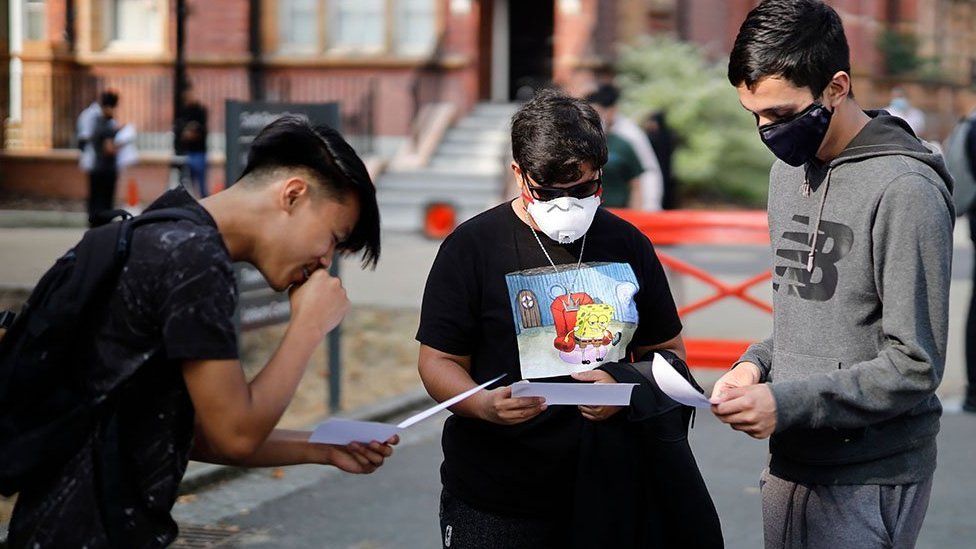
Like the rest of her classmates, she finished school abruptly last March without a proper chance to say goodbye and, studying from home, has never got the chance to properly start her new life as a university student. "It doesn't feel like I'm in university," she says, even though she is paying full tuition fees.
Eleanor says the constant interruptions to her education has caused much "anxiety" and she worries about how fairly her year will be treated in the future.
She says she faces uncertainty around her future job prospects, whether her A-level grades be seen as "proper" results and whether her social life will recover after so much time at home.
At school level, there are far-reaching questions about how to repair the damage caused by the pandemic.
It's been incredibly difficult to get to know people... It doesn't feel like I'm in university
This is a "national priority", said Prime Minister Boris Johnson, announcing an "education recovery commissioner" to oversee a long-term plan. The new commissioner, Sir Kevan Collins, will have his hands full.
England's education watchdog Ofsted has warned of children's learning slipping backwards, particularly for the disadvantaged.
Evidence from the National Foundation for Educational Research supported this - showing primary pupils' levels of English and maths are "significantly lower" than three years ago.
The Institute for Fiscal Studies has priced the long-run loss of schooling at £350bn, in reduced earnings over the working lives of today's schoolchildren, with the biggest burden on the most disadvantaged.
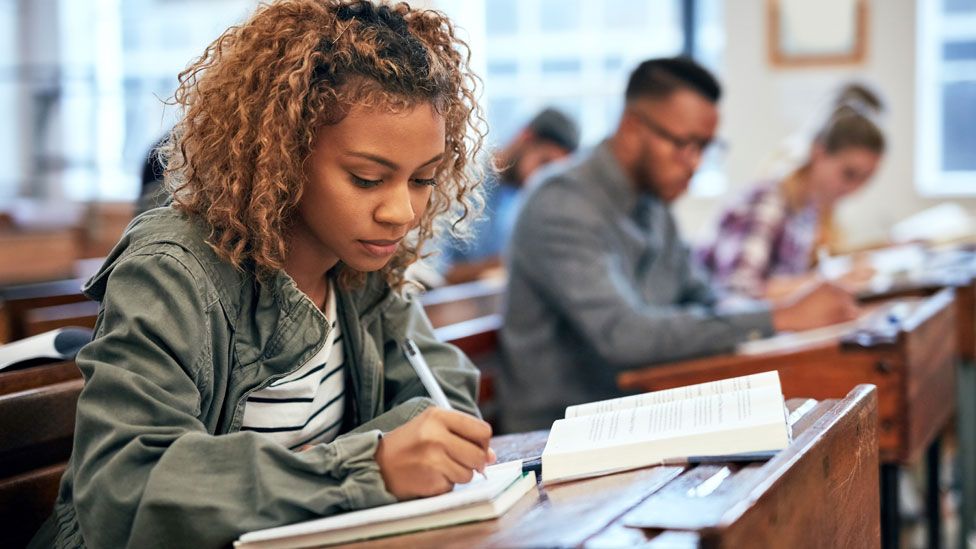
There have been significant promises of support from England's Department for Education, with £1bn in catch-up funding, including for tutoring, and the aim of distributing 1.3 million laptops and computer devices.
Further education colleges have also been promised more support for retraining and vocational skills for work.
But Robert Halfon, chairman of the education select committee, says the scale of the disruption will need a 10-year programme to get back on track.
Finding somewhere to live
An unexpected side-effect of the pandemic has been an exodus from London and other big cities, as people working from home swap their cramped apartments for larger homes with gardens, in suburbs, towns and villages,
Many migrants have also returned to their home countries and the flow of new arrivals has all but stopped. The falling population in London has led to reductions in the cost of renting - and there are differing forecasts over whether there will be a drop in house prices.
Falling house prices might have been good news for young people, but banks have cut back on lending to first-time buyers and many want a 15% deposit.
No-one knows whether the population drift out of the cities will be permanent.
Despite higher living costs, surveys show young people want to stay in the cities. But as housing charities such as Shelter point out, falling rent - or dreams of owning your own home - are not much use if you have lost your job.
The pandemic has seen a huge increase in the number of people claiming housing benefit, and facing possible eviction when the ban on that ends.
Like in the last major recession, there are signs many young people are having to move back in with their families, if they can.
And then there are the missed social opportunities.
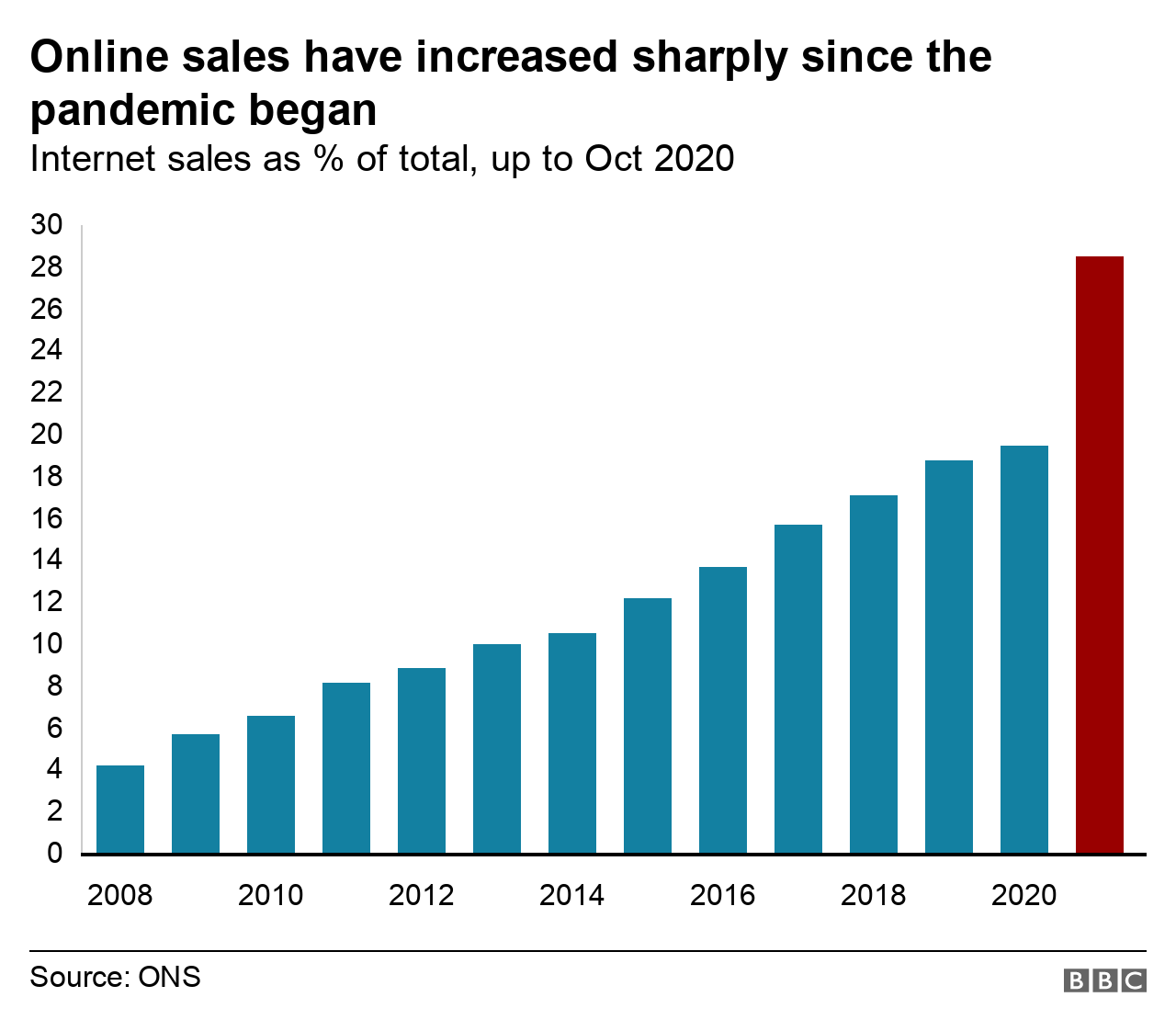
When young people eventually get outside to socialise and relax again, what's the future going to be for town centres and entertainment?
Will shops come back to life or has something fundamentally changed, accelerating the trend towards online?
Mental health faces 'heavy toll'
"Stressed, confused, worried. It takes a toll on your mental health really," says Billy, a secondary school pupil in Middlesbrough. "I feel cheated really."
He is not alone. The NSPCC says the amount of counselling for loneliness provided by its Childline service has risen by 10% since the pandemic started.
"Children's mental health is going to be one of the biggest long-term challenges in dealing with the legacy of the pandemic," says England's children's commissioner Anne Longfield.
Children's mental health is going to be one of the biggest long-term challenges in dealing with the legacy of the pandemic
She says an immediate question is about funding for an adequate response - and wants a "rocket boost" in financial support.
"As an absolute minimum, all schools should be provided with an NHS-funded counsellor, either in school or online," says Ms Longfield.
The children's commissioner says the pandemic has been a "seismic event" for young people - with some facing a "heavy toll" of disruption, isolation and anxiety. "It is highly likely that the level of underlying mental health problems will remain significantly higher as a result of the pandemic," the children's commissioner warns.
The prime minister says he wants to "shine a spotlight on this vital issue" and this week appointed a youth mental health ambassador", Dr Alex George, who will act as a "champion" and promote the importance of children's mental health.
"how" - Google News
February 05, 2021 at 10:39AM
https://ift.tt/3tuG0so
Coronavirus: How will 'Generation Covid' catch up? - BBC News
"how" - Google News
https://ift.tt/2MfXd3I
Bagikan Berita Ini














0 Response to "Coronavirus: How will 'Generation Covid' catch up? - BBC News"
Post a Comment